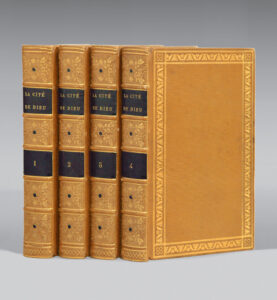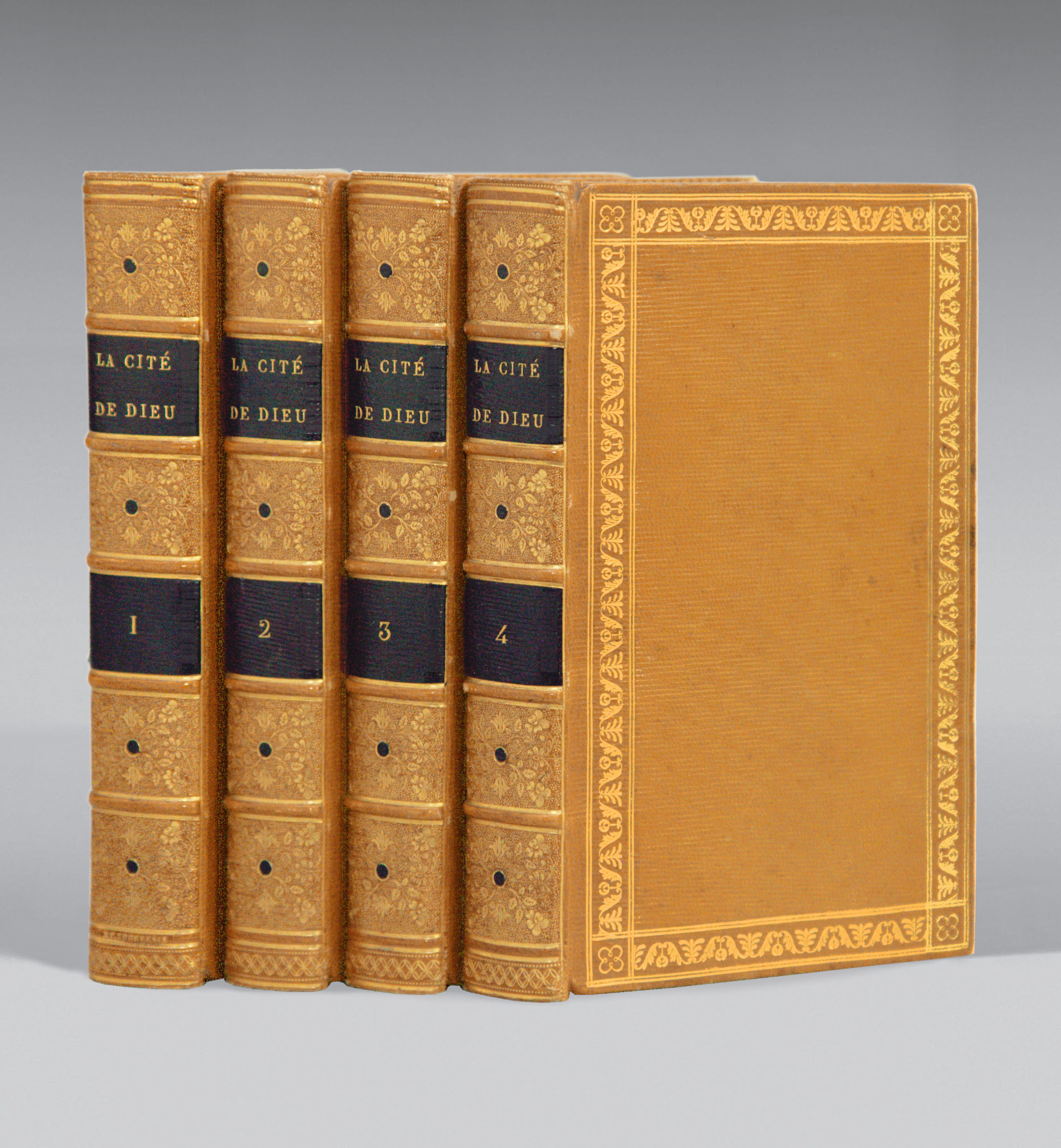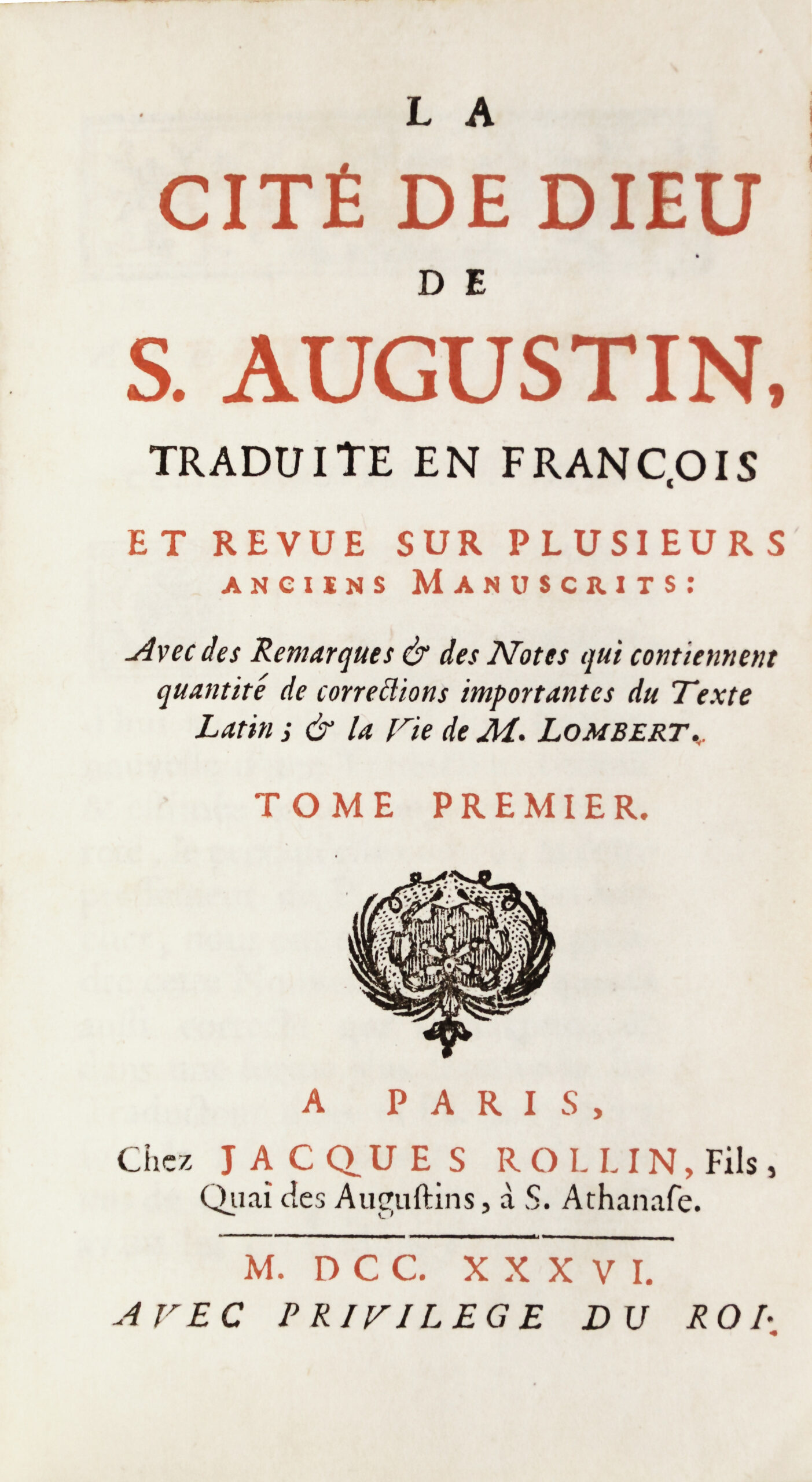Paris, Jacques Rollin, 1736.
4 volumes 12mo of: I/(1) l., (51) pp., 557 pp., (3); II/ (9) ll., 516 pp.; III/ (1) l., 536 pp., (7) ll.; IV/ (1) f., 541 pp. misnumbered 545, (11) pp.
Straight-grained citron morocco, palmette around on the covers, spines decorated with a thousand dots, black morocco lettering pieces, gilt edges. Early 19th century bindings signed by Thouvenin.
162 x 95 mm.
Precious edition of the City of God translated by Pierre Lombert.
The capture of Rome by Alaric’s Visigoths on August 24, 410 caused an unimaginable shock in the Christian West.
To this profound shock, which contemporaries attributed to the abandonment of pagan gods in favor of the worship of the one God, Saint Augustine provided an eloquent response in 412 with the 22 books of The City of God, an essential and timeless work, republished in the Pléiade series in November 2000.
Through his broad interpretation of human history, Saint Augustine exercised a profound influence on all individuals who were curious and concerned about their own destiny.
“The City of God” is an apology for Christianity. It is at once a philosophy of human society in its historical development, a metaphysics of society, and an interpretation of individual and social life in the light of the fundamental principles of Christianity. The book was written in response to the accusation made in 410 by pagans, who claimed that the sack of Rome by Alaric’s Goths was caused by the abandonment of the worship of traditional gods, imposed by Christianity.
This text has had a profound influence on all eras and on all individuals curious and concerned about their own destiny. This is also why, in the polemics of the Middle Ages between the papacy and the empire, people wanted to draw on this work (falsely identifying the City of God with the empirical Church and the City of the World with the concrete State); This is why, from Bossuet to Balbo, all those who have revisited the problem of history have turned to Saint Augustine; this is why, despite the development of theoretical sciences, The City of God remains a living book that continues to find readers.
This was the first book printed in Italy (1467, in Subiaco) and we know how deeply humanism was charmed by it, as were the Reformers, Pascal, and Kierkegaard.
Superb copy luxuriously bound by Thouvenin in citron morocco decorated on the spines with a thousand dots.
Provenance: Yemeniz (bookplate; Paris, 1867, no. 3111); baron Ménard de Marsainvilliers (handwritten ex libris, in pencil, on the reverse of the front flyleaf).
See less information


